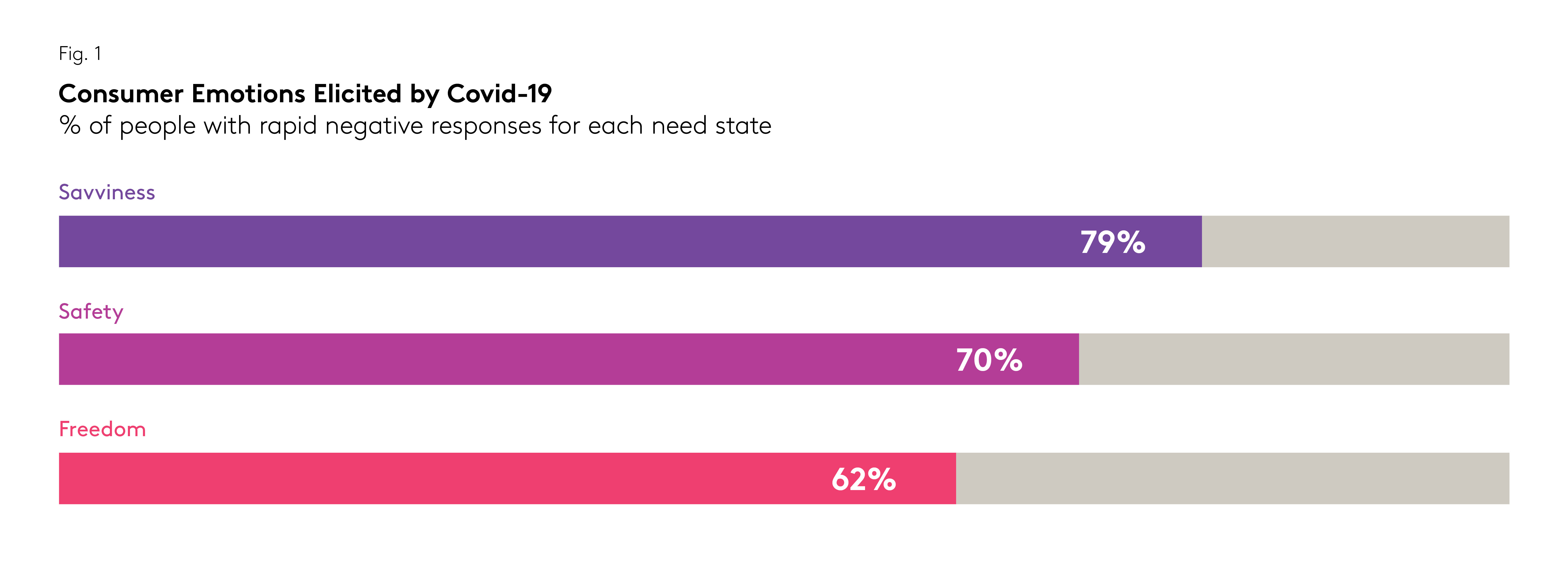As states loosen travel restrictions, US consumers are weighing the benefits of leisure travel against the risk of increased exposure to the coronavirus. Underlying this decision are three latent human needs – savviness, safety and freedom – that have emerged as the most important considerations among would-be travellers since the onset of the pandemic.
By combining virtual qualitative and “system one” intuitive association techniques, Kantar is providing hotel marketers with deep human understanding that goes beyond traditional research methods. Given consumers’ difficult trade-off between travelling and contracting the virus, this approach offers a more complete depiction of consumer mindsets and pinpoints the opportunity for hotel brands to increase occupancy rates.
Kantar has identified three consumer needs that are being unmet:
Savviness
79% of people are experiencing negative feelings about savviness, specifically the ability to make the right decision to gain the best outcome.
Safety
70% of people are experiencing negative feelings about safety, a foundational need rooted in a sense of personal security.
Freedom
62% people are experiencing negative feelings about freedom, the sense of being in control without the constraints of external influences like social distancing or quarantine.
Considering the tendency for people to place greater weight on the negative aspects of their decisions rather than the positive ones, these needs may directly impact the choices they make and the risks they are willing to take with regard to travel.

The path forward for hotel brands
Understanding, messaging and assuaging these needs is now the primary challenge facing hotel marketers.
Consumers feeling a lack of savviness present a particular challenge for hotels. Our analysis indicates that hotel brands will need to overcome a significant negativity bias for the foreseeable future. Since people tend to place greater weight on the negative aspects of their decisions, hotel marketers need to equip potential travellers with the information they need about the property and the community to reduce anxiety and enable them to make the most informed decision possible. In addition, authentically messaging the positive aspects of their decisions — such as togetherness, a new environment and experiences, and a taking a break — will help offset negative consumer associations.
To overcome safety concerns, it’s imperative that hotels signal and deliver on the promise of hygiene. While many hotels are meeting this need by promoting new cleanliness protocols, they can also benefit from early adopters who share positive travel experiences at their properties. Online reviews and word of mouth are more important than ever as other consumers will look to early adopters for reassurance that it is safe to travel.
Finally, hotels will need to exercise caution when looking to address consumers’ need for freedom, a potentially polarizing topic. Hotel marketers need to respect the savviness and safety concerns that are prevalent across consumer segments. However, it is equally as important to meet consumers’ growing demand to travel again. Messaging such as “we’re ready when you are” will help recognize individual choice, particularly in states with loosening restrictions.
